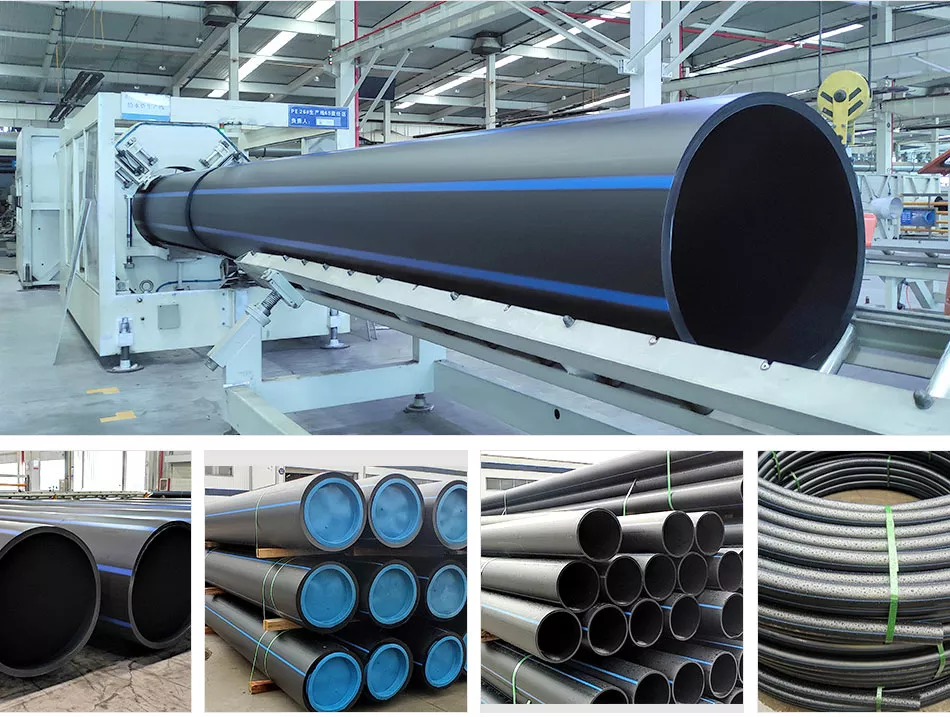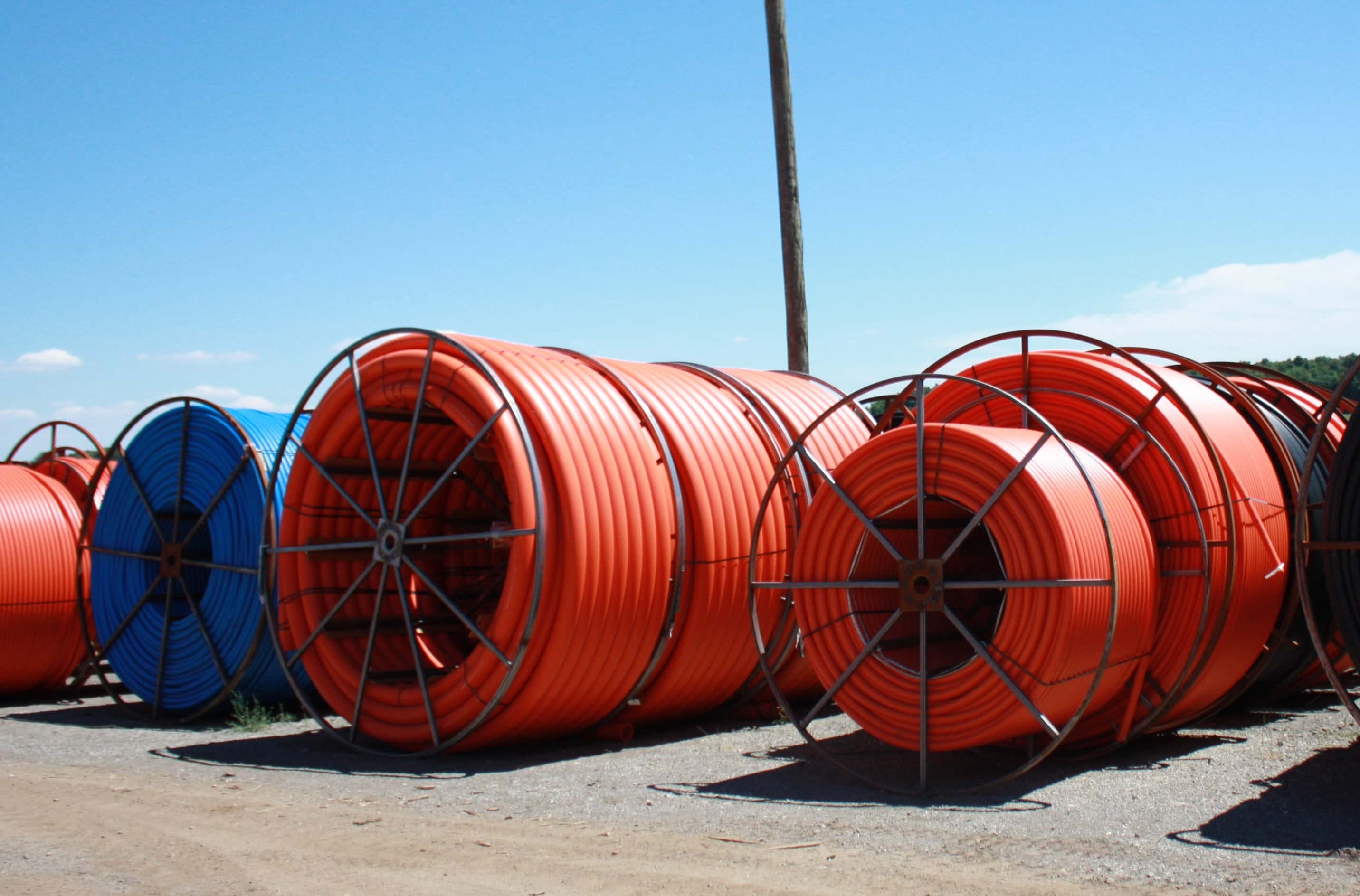A Comprehensive Overview to the Numerous Uses of HDPE Pipeline in Building and Sector
HDPE pipes have actually become an essential component in contemporary construction and commercial applications. Their unique homes, such as resistance to corrosion and lightweight layout, make them suitable for a vast array of uses. From water systems to agricultural watering, HDPE pipes provide solutions that improve performance and sustainability. Understanding their diverse applications is essential for professionals looking to maximize infrastructure. What specific advantages do these pipes give each market?
Supply Of Water and Circulation Equipments
Supply of water and distribution systems are important components of urban infrastructure, typically counting on high-density polyethylene (HDPE) pipelines for their longevity and efficiency. These systems transport drinkable water from treatment facilities to consumers, ensuring accessibility and safety. HDPE pipes are preferred for their resistance to deterioration, chemicals, and severe temperature levels, which boosts their long life and lowers upkeep expenses. Furthermore, their lightweight nature allows for easier installment and transport, making them suitable for different metropolitan and country applications.
The versatility of HDPE pipelines allows them to be installed in tight rooms and around challenges, reducing the requirement for substantial excavation (Texas hdpe pipe manufacturer). Their smooth interior surface reduces friction losses, improving water flow prices. As cities proceed to expand, the need for trusted water system systems increases, placing HDPE pipelines as a lasting option for modern-day infrastructure projects. Their proven performance history makes them a preferred selection amongst designers and city planners alike
Wastewater Administration and Therapy
Efficient wastewater administration and treatment are crucial for maintaining public health and wellness and ecological quality. HDPE pipelines play an important function in this process as a result of their sturdiness, resistance to rust, and capability to endure rough chemicals. These pipes are generally made use of in numerous applications, including sewage systems, stormwater water drainage, and wastewater therapy facilities. Their lightweight nature assists in easier setup and transport, reducing labor prices and time.
In addition, HDPE pipes have a smooth indoor surface area that lessens friction loss, advertising reliable circulation prices. They are additionally less prone to leakages and failings contrasted to standard products, making sure that impurities are had successfully. In addition, their flexibility permits versatility in different soil problems, making them appropriate for diverse ecological settings. As sectors significantly prioritize lasting methods, the use of HDPE pipelines in wastewater management systems straightens with goals for lowering ecological influence and improving source healing.
Agricultural Irrigation Solutions
In farming setups, effective watering services are important for maximizing crop yields and taking care of water resources. HDPE (High-Density Polyethylene) pipelines play an important duty in modern watering systems as a result of their toughness, flexibility, and resistance to rust. Their capacity to endure high pressures makes them suitable for both surface area and subsurface irrigation applications, making certain uniform water distribution throughout fields.
Farmers can use HDPE pipelines in drip watering systems, which deliver water straight to plant origins, minimizing waste and advertising healthy and balanced growth. Furthermore, these pipelines are light-weight and easy to set up, lowering labor costs and setup time. Their lengthy life expectancy and low maintenance demands better enhance their appeal in agricultural techniques.
Furthermore, HDPE pipelines are eco-friendly, as they can be recycled and do not seep hazardous chemicals right into the dirt. This makes them a sustainable selection for farmers aiming to adopt green farming methods while making best use of performance.
Industrial Applications and Procedures
Versatility is a hallmark of HDPE pipelines, making them indispensable in numerous commercial applications and processes. These pipelines are extensively utilized in chemical handling industries as a result of their outstanding resistance to a wide variety of destructive compounds. HDPE's light-weight nature, incorporated with high tensile toughness, enables very easy setup and long-lasting performance sought after settings.
In the oil and gas field, HDPE pipelines play a crucial duty in moving hydrocarbons and gases, many thanks to their toughness and versatility - Texas hdpe pipe manufacturer. In addition, they are utilized in mining operations for the transport of slurry and other products, where standard piping systems may fall short
In addition, HDPE pipes are increasingly made use of in manufacturing centers for water system lines and wastewater management. Their capacity to endure extreme temperatures and stress makes them suitable for a selection of industrial procedures. Overall, HDPE pipelines contribute considerably to efficiency and security throughout diverse commercial applications.
Stormwater Management and Drain Equipments
Stormwater management and water drainage systems are vital parts in metropolitan framework, developed to take care of excess rains and decrease flooding dangers. High-density polyethylene (HDPE) pipes are significantly used in these systems due to their resilience, adaptability, and resistance to corrosion. These pipes effectively move stormwater away from inhabited areas, lessening surface area runoff and stopping waterlogging.
HDPE's light-weight nature facilitates simpler setup, minimizing labor prices and building and construction time. Additionally, its resistance to chemicals and environmental stressors assurances durability and reliability in various climates. Along with standard drain applications, HDPE pipelines are additionally used in cutting-edge solutions such as green infrastructure, that includes rain yards and absorptive sidewalks.

Often Asked Inquiries
How Does HDPE Pipe Contrast to PVC Pipeline in Cost?
In general, HDPE pipeline tends to be much more pricey than PVC pipeline due to its improved longevity and flexibility. Long-term cost considerations, such as maintenance and lifespan, may favor HDPE in particular applications.
What Is the Lifespan of HDPE Water Lines Under Diverse Problems?
HDPE pipelines normally have a life-span of 50 to 100 years, relying on ecological problems, setup methods, and usage. Aspects such as temperature level, dirt type, and exposure to chemicals can significantly influence their resilience.
Can HDPE Water Lines Be Recycled After Use?
Yes, HDPE pipes can be reused after usage. The recycling process involves thawing down the product, enabling it to be repurposed into new items, consequently promoting sustainability and minimizing environmental effect connected with plastic waste.
Are There Any Kind Of Details Installment Difficulties With HDPE Pipes?
Installment difficulties with HDPE pipes consist of appropriate jointing methods, guaranteeing adequate trench problems, and handling thermal expansion. In addition, experienced labor is called for to manage specialized tools, which can complicate the installation procedure in various settings.

What Accreditations Should I Try To Find When Getting HDPE Pipings?
When purchasing HDPE pipelines, one should look for certifications such as ASTM, AASHTO, and ISO, which confirm quality and compliance with industry standards, guaranteeing get more info durability and performance in various applications. - Pipe Manufacturing Midland TX